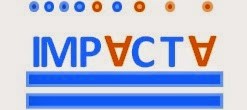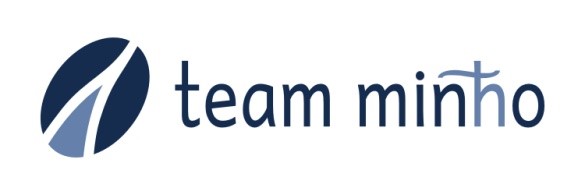LABPLAS
LAnd-Based Solutions for PLAStics in the Sea (H2020, (project reference nr.: 101003954) 
Funding entity: European Commission
Coordinator: University of Vigo
Duration: 48 months (starting date: 01/06/2021)
Total Project Cost: 5.011.111 €
It is currently recognized that plastic pollution in the sea has chiefly land-based sources. Sixteen partners from academic, public and private institutions joined LABPLAS, encompassing expertise in pollution assessment, environmental modelling, environmental chemistry, oceanography, hydrology, paleoecology, soil ecology, microbiology, water engineering, nanotechnology, economics and knowledge transfer. These experts team up with the aim of tracking sources of plastic in the environment, providing European authorities with the prenormative knowledge needed to fight plastic pollution on solid scientific grounds, and industry with the ecotoxicological information needed to produce environmentally innocuous products in the context of a circular economy. Focus on currently non-monitored small micro and nanoplastics (SMNP) (<100 µm) is needed, since land-derived plastics fragment into increasingly small particles whose bioavailability and impact increases as particle size decreases.
LABPLAS Fact Sheet: https://cordis.europa.eu/project/id/101003954
Web Page: https://labplas.eu/

RESPONSE
Toward a risk-based assessment of microplastic pollution in marine ecosystems: RESPONSE 
Funding entity: Joint Programming Initiative, Healthy and Productive Seas and Oceans (JPI Oceans)
Coordinator: Universitâ Politecnica delle Marche (Ancona, Italy)
In Spain, supported by the Spanish National Research funding Agency (AEI), reference: PCI2020-112110 / AEI / 10.13039/501100011033
Start: 01/09/2020
Duration: 36 months
Total Project Cost: 2.633.000 €
The RESPONSE project brings together 14 partner institutions from across Europe with expertise in oceanography, environmental chemistry, ecotoxicology, experimental ecology and modelling to answer key research questions about the fate and biological effects of microplastics and nanoplastics (MPs and NPs) in marine ecosystems.
We’ll be identifying possible accumulation zones in European coastal ecosystems by studying hydrological transport dynamics; analysing the abundance and type of micro- and nanoplastics found in marine species by sampling representative marine animals; identifying how plastic particles, along with other environmental stressors, affect the health of species and food webs; and synthesising this research into a Weight of Evidence model.
Response is funded by the Joint Programming Initiative for Healthy Oceans and Seas (JPI Oceans) through support from the following national funding agencies: Belgium - The Belgian Science Policy Office (BELSPO); Denmark - The Innovation Fund Denmark (IFD); Estonia - The Ministry of the Environment of the Estonian Republic (MoE)' and the Estonian Research Council (ETAgz); France - The National Research Agency (ANR); Germany - The Federal Ministry of Education and Research (BMBF); Ireland - The Marine Institute (MI) and the Department of Housing, Planning and Local Government (DHPLG); Italy - The Ministry of Education, University and Research (MIUR); Norway - The Research Council of Norway (RCN); Portugal - The Science & Technology Foundation (FCT); Spain - The Spanish State Research Agency (AEI); Sweden - The Swedish Research Council for Environment, Agricultural Sciences and Spatial Planning (FORMAS).
Project's website: https://www.response-jpioceans.eu/


ECOPLAS
ECOTOXICOLOGICAL EVALUATION OF RECYCLABLE POLYMERS AND BIOPOLYMERS (PID2019-108857RB-C32)
Funding entity: Ministry of Science and Innovation
The Risbioplas project has been financed by the Ministry of Science and Innovation - Spanish Agency of Research (AEI in Spanish), reference 10.13039/501100011033
Participating entities: University of Vigo, University of Coruña (QANAP group, project coordinator)
Coordinator at UVigo: Ricardo Beiras, Professor of Ecology
Start: 06/01/2020
Duration: 36 months (2020 - 2023)
In previous projects such as ARPA-ACUA we have verified that the polymers that make up conventional plastics (polyethylene, nylon, PVC, etc.) are totally harmless, in ecotoxicological terms, while certain functional additives used to confer better mechanical properties to objects made with these polymers, could pose chemical risks and be toxic to aquatic organisms. The toxicity of plastics does not lie in the plastic particles themselves but in the additives leached into the aqueous phase, so a priori ecotoxicological investigation of these additives can provide very valuable information to the plastics industry for manufacturing harmless materials .
On the other hand, in this new ECOPLAS project we focus especially on biopolymers, which, unlike conventional petroleum-derived plastic, are manufactured from biological material in order to be potentially biodegradable. Our collaboration with the environmental chemistry group QANAP of the UDC, which coordinates the project, makes it possible to identify toxic chemical substances emitted by plastics in the aquatic environment. Our research within the framework of this new project is focused on PHB (polyhydroxybutyrate) and PLA (poly-lactic acid) biopolymers. For the first, we have indications that those present a different aquatic toxicity mechanism, not derived from the leachate of additives but from the release of micro and nanoparticles that are toxic to organisms already before additives. We must therefore be very cautious and study in depth the possible environmental impact of biopolymers before recommending the replacement of conventional polymers with biodegradable ones.

GLAUKOS
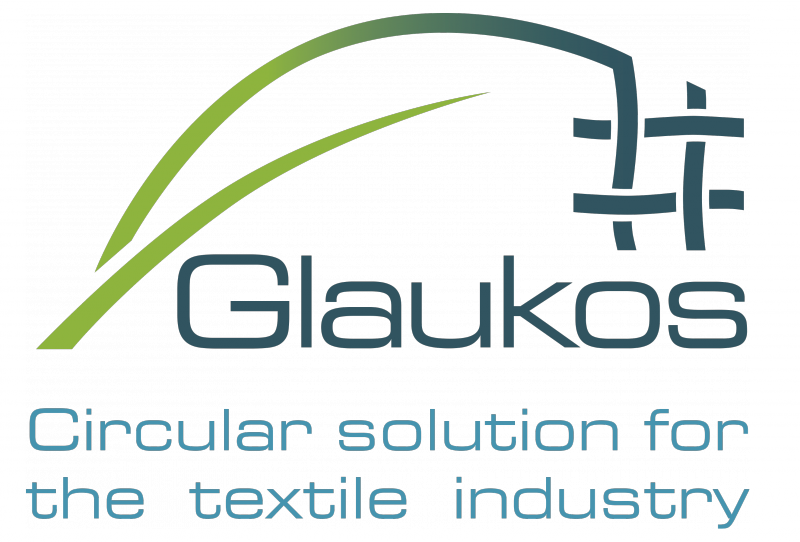
Glaukos project will support the textile and fishing gear industries in their transition towards a circular sector, where textile recycling is maximised, (micro)plastic leakage into the environment mitigated and biomass used as a renewably sourced virgin feedstock. (project reference nr.: 887711).
Coordinator: Bio Base Europe Pilot Plant (BBEPP)
Project Duration: 48 Months (starting date: 01/06/2020)
Total Project Cost: 4.185.880 €
Glaukos* project will develop innovative textile fibres and textile coatings that reconcile an excellent environmental performance, with adequate technical characteristics. The focus lies on two important contributors to the (micro)plastic pollution in our oceans: fishing gear and clothing. The complete life cycle of these textiles will be redesigned: their sustainability performance (i.e. biodegradability and bio-recyclability) will be enhanced significantly, while their technical performance will be matched to end-user requirements.
Glaukos builds upon i) triggerable biodegradability as key concept in polymer design to mitigate (micro)fibre pollution, and ii) bio-recycling as sustainable end-of-life solution. In addition, the supply chain distance is substantially reduced by scaling up a disruptive way of producing the main polymer building block (itaconic acid) from several bio-based feedstocks.
The underlying objective of GLAUKOS is to reduce the carbon and the plastic footprint of clothing and fishing gear.
(* Glaukos is the Greek sea god of fishermen. He was commonly believed to protect the oceans, as is the ambition of this project by developing innovative alternatives for textiles that are currently polluting our oceans)
More info:
- First press release: https://www.glaukos-project.eu/documents/Glaukos_1st_Press_release.pdf
- Glaukos in a nutshell: https://www.glaukos-project.eu/documents/Glaukos_nutshell.pdf
Project's website: https://www.glaukos-project.eu/
ARPA-ACUA
Searching alternative polymers and plastic additives with lower environmental impact on aquatic ecosystems. (CTM2016-77945-C3)
Partners: University of Vigo (leader), University of A Coruña and AIMPLAS
Project Coordinator: Prof. Ricardo Beiras
Project Duration: 36 Months from 30/12/2016
Total Project Cost: 403.560 €
Plastics are synthetic polymers extremely useful in all fields of human activities so that its global production has now reached 300 million tons per year, of which a good part finds its final destination in aquatic ecosystems. Although polymers are completely harmless, plastic objects carry in its composition to confer them the desired properties hundreds of different chemical additives (plasticizers, flame retardants, impact modifiers, stabilizers against ultraviolet radiation and microorganisms, etc.), some of which present controversy because of their toxic effects on organisms and especially on the endocrine system. These additives are not covalently linked to the polymer chains and leach into the aquatic environment easily during the aging processes of plastic subject to environmental conditions after dumping in water.
The ARPA-ACUA project aims to contribute to the selection of environmentally friendly alternatives regarding the chemical composition of such polymers in order to minimize the environmental impact of these materials and minimize potential adverse effects on the environment and health.
Deliverable T1,E1: Parameters of Toxicity of Plastics Chemical Additives [pdf] (Es)
Deliverable T2,E4: Review: Endocrine disruption in echinoderms [pdf] (En)
RepescaPLAS 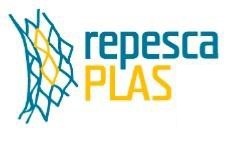
RepescaPLAS. Valorization of plastic waste materials recovered from the sea: characterization, applications and product development 2017-2018.
Lead Partner: AIMPLAS (Instituto Tecnológico del Plástico de Valencia)
Funding Agency: Fundación Biodiversidad – Programa Pleamar
Partners: Fundación Global Nature, Asociación Vertidos Cero, Universidade de Vigo y Cofradía de Pescadores de Gandía.
The recompilation of information about these materials and the analysis of the role they have in our lives make the increase of people’s awareness possible, as well as the reduction of plastic impact in the environment. For this reason, scientific and technological projects rise up to reach that aim.
The main pourpose is to know better the type of marine debris we found and reduce its impact. This way, after recovering the marine debris from the open sea, they intend to reincorporate the materials into the production chain, that is to say, to get the valorisation of those plastic objects, being a benefit for the circular economy. This proceeding include several phases: collecting and characterisation (by type, nature and ecotoxicity), valuation and spreading of the results obtained.
PHASE 2: 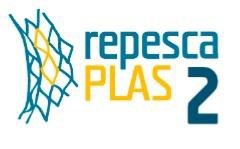
Project Duration: 12 months (2018-2019)
Total Project Cost: 166.631 €
Activity 4.3: Revisión: Efectos ecológicos de macro-, meso- y microplásticos [pdf] (es)

More info: http://ecotox.es/en/repescaplas-plastics-recovered-sea
Más información: https://programapleamar.es/repescaplasesiduos (es)
FASE 3:
Project duración: 12 months (2019-2020)
Total Project Cost: N/A
Activity 4.4: Ecotoxicological Assays of Marine Debris and its Obtained Products

Más información: https://www.programapleamar.es/proyectos/repescaplas-3-valorizacion-material-de-residuos-plasticos-recuperados-del-mar-protocolo-de (Spanish)
EPHEMARE
EPHEMARE Project deals with the ecotoxicological effect of Microplastics (MPs) in marine ecosystems.
Lead Partner: University of Vigo
Project Duration: 36 Months
Total Project Cost: 3.154.000€
Plastics are nowadays ubiquitous in the environment, and their global production continues to rise. They are not biodegradable, but undergo weathering that renders their fragments more fragile, and combined to hydrodynamics produce increasingly small particles termed microplastics (MPs), within the micron to mm range, readily taken up by suspension and sediment feeders, and incorporated into the trophic webs. MPs can be toxic per se due to additives used by industry as colorants, plasticizers, flame retardants, etc. In addition, they concentrate hydrophobic chemicals (persistent pollutants (PPs) found in extremely low concentrations in seawater.
EPHEMARE, targets (1) the uptake, tissue distribution, final fate and effects of MPs in organisms representative of pelagic and benthic ecosystems, and (2) the potential role of MPs as vectors of model PPs that readily adsorb to their surfaces.
Leaflet: [pdf] (En)
More information: http://jpi-oceans.eu/ephemare
IMPACTA
IMPACTA Project deals with the impact of micro-plastics, regulated and emerging contaminants in the marine ecosystem and with the establishment of environmental quality criteria.
Lead Partner: IEO
Project Duration: 2 years
Total Project Cost: 482.790€
The sea suffers a massive influx of synthetic substances as a result of human activity, especially in coastal areas. Just a small part of these substances is under surveillance (metals, organochlorine compounds, etc.), and it is essential to identify what other contaminants may be causing adverse effects on the ecosystem. Plastics are of particular concern due to their high persistence in the marine environment (450 years). Each year 6.4 million tons of garbage end up in the oceans (United Nations), 83% being plastics (ICC) which form over the time very small particles called micro-plastics which are incorporated into the food chain. Although plastic is inert many additives used for strength, or color (bisphenol A phthalates, cadmium ...) are toxic. Also micro-plastics can concentrate contaminants in the environment and act as transfer vectors into the food chain.
The IMPACTA project aims to make a first assessment of the occurrence, distribution and impact of micro-plastics and emerging pollutants in coastal sediments of the Iberian Peninsula.
Leaflet: Enviromental Quality Criteria in Marine Water [pdf] (es)
More information: http://impacta2014.blogspot.com.es/ [not available]
TEAM MINHO
Team Minho Project deals with the transfer tools for the assessment, management, and environmental education in estuaries.
Lead Partner: University of Vigo
Project Duration: 36 months
Total Project Cost: 1.032.460,32€
TEAM-Minho gathers scientists and water the hidraulic public administrations from both sides of Minho River in order to develop common tools for the coordinated implementation of the Water Framework Directive in its estuary. At the same time, the project aims to promote citizen participation in the management and conservation of aquatic ecosystems.
The essence of the proyect is summarized in the following two key ideas:
- Two sides a unique estuary. Minho River Minho needs cooperation between Spain and Portugal at all levels to achieve the common goal of conservation and sustainable use of the environment. Changes adversity biodiversity. The involvement of society in the conservation of aquatic ecosystems is essential. TEAM-Minho reminds society that our behavior towards the estuary is reflected in its condition
- Shift adversity by biodiversity. The involvement of society in the conservation of aquatic ecosystems is essential. TEAM-Minho reminds society that our behavior towards the estuary is reflected in its conservation conditions.
More information: http://www.team-minho.eu/index.php/es/ [not available]
© 1995 - 2025 Equipo de investigación ECOTOX.


